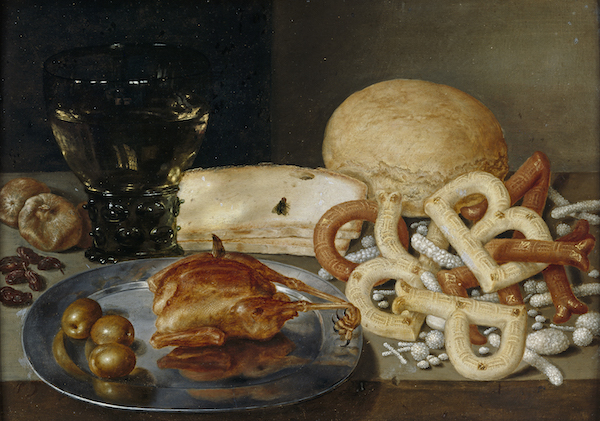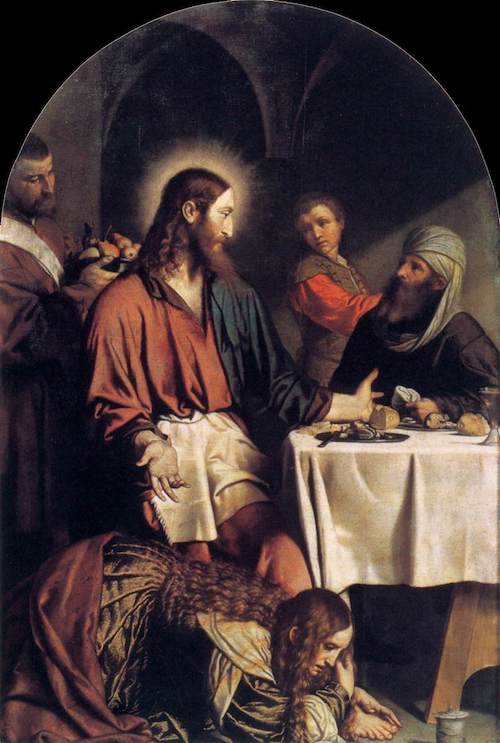

Dambudzo Mushambi, resident in South Africa, is a PhD candidate at the University of Pretoria’s department of Systematic Theology and Ethics and is an Associate Fellow of the KLC.


It took a while, but we finally got there.
My kids, well, the two oldest at the least, now heartily munch on their bones whenever we have chicken for supper. Not that it needs saying, but don’t worry, it’s all done under adult supervision. My wife and I had a good number of conversations about this, and we finally landed on giving the kids a choice – if they want to, they can gnaw on the bones; if they don’t, that’s also fine. No shaming either way.
Now, why would shaming be involved in this at all?
Okay, let me school you. Real talk. Among most of the black African people I know, you don’t stop at eating only the meat on the bone. The bone itself is fair game. Not crunching down on that cartilage, and then at the bone to get at the marrow, is like you’re leaving food on your plate. And that’s a no-no. It can be considered “posh” if you leave the bones on your plate intact. I laugh every time I watch cooking shows like Top Chef, when they talk about seasoning, grilling and eating bone marrow, as if that’s something new and revolutionary. Maybe to some, I guess. It’s been normal for me and my family for ages though. Go figure.
A friend of mine wrote a song called “Black Excellence 600.” One of the things he points out in that song is how African Americans made the most of the little they had. Chitlins (cooked and seasoned pig intestines) are the result of someone trying to make the best out of a bad situation. In a meat-scarce situation, when you get meat with bones, trust me, those bones aren’t coming out of it in one piece. That’s why many black folk in Africa (and other peoples across the world) chew their bones, even though their economic situations might have changed and they don’t strictly need to anymore.
My kids have struggled to pick up my mother tongue, Shona. That’s mostly my fault, but with being away from Zimbabwe, they haven’t had too many spaces among peers in which to learn the language. With that linguistic barrier in place already, I don’t want to add one more thing that will create a degree of separation between them and other people when we go back home for visits. Also, like good missionary children, they need to be able to fit in everywhere. Some folks chew their bones. These kids need to be ready for that.
On the other side of the equation, for my English South African wife, it’s something quite odd to gnaw at your bones. You pick at the meat on your bones using a knife and fork. Maybe, at a push, you pick up the bone and bite around it. But you leave the cartilage and the bones intact. It’s only proper. While it would be considered posh and wasteful among my people for you to leave your bones intact, for my wife it would be considered rude to handle your food so much, let alone crunch on the bones.
So, we really had to try to navigate this cultural conversation around food without normalising one type of behaviour or shaming the other. Both alternatives had to be equally on the table as viable options. We looked at it as loving and appreciating one another, accepting our differences without shaming, or making anyone feel lesser than.
Does any of this really matter?
It does, if we are serious about offering warm, cross-cultural hospitality that welcomes all sorts of folk and embraces the differences that make people interesting. Look, if bone-crunching and bone marrow of all sorts isn’t your thing, then it isn’t. I’m not sure who Paul in this equation would label the “weak” or the “strong” brother or sister in Christ (Rom 14). But it seems to me that those who crunch their bones ought to crunch them heartily unto the Lord and without shame or shaming others; those who do not, don’t have to. Surely there’s room enough in our hearts and at our tables for all types?


Talking about the food one eats and how one eats that food opens further interrelated questions of with whom you eat and why. By what we serve and how we curate our hospitality, we determine the behaviours that are appropriate and who can feel welcome in that place. In this way, hospitality becomes an expression of power, and all expressions of power can be moulded to reflect the loving, self-giving and vulnerable service that Jesus modelled for us. There is, of course, immense freedom in Christ regarding what we eat, and with whom we eat it (Matt 9:9–13; Mark 7:1–23; 1 Cor 8; Gal 2:11–21). This freedom, as with all our other freedoms in Christ, is to be exercised wisely, charitably and lovingly so that food doesn’t become yet another source of shame or exclusion.
Food and the spaces in which food is offered and consumed are entangled in all sorts of politics and cultural hang-ups, including the type and quality of the fare on offer, as Michael Pollan has written about extensively. Food is shot through with complications that make it a veritable minefield as one navigates what precisely constitutes good table manners in a multicultural context. This is to say nothing about issues of where food is sourced, as well as questions of the ethics of consuming certain kinds of foods and the challenge that presents for offering hospitality.
Offence can easily be taken or given over whether one chews on bones or not, and that is one of many possible ways in which we can subtly justify excluding the “other.” What was true in Jesus’ day is still true today – with whom you eat matters. It was often at table, and in his descriptions of the great messianic banquet that Jesus demonstrated the nature of the kingdom as a space of welcome for all who would come (Luke 14:1–24). The dinner table can become a beautiful, disruptive (in a good way) mirror of Jesus’ upside-down kingdom where “outsiders” and “enemies” are loved and welcomed. This mundane but intimate space becomes a visible sign of the inbreaking of God’s kingdom, but it requires us to take the table seriously and be intentional about how we curate it.
Our hospitality can subvert expectations, challenge assumptions, welcome outsiders or be an invitation to dialogue, and it is also a space to be at our most human and vulnerable as we embody the reality that we need something outside ourselves to survive. Hospitality (xenophilia – love of the stranger or foreigner), is counter-politics that rejects fear of the unknown other or hatred of one’s “enemies.” While the dinner table is rife with the interplay of culture, class, taste and a smorgasbord of ethical concerns, making it a minefield, it also makes it ripe for some kingdom disruption of the sort Jesus exemplified.